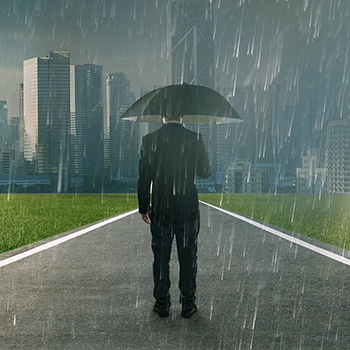“Multiple destructive storm systems damaged property and killed at least 19 people over the weekend, and continued to batter much of the U.S. with rain, snow and wind today,” writes Rebecca Hersher in her latest NPR article, “Destructive Storms Soak, Batter And Bury Communities Around The Country.”
Hersher confirms that “All 19 reported deaths were in the South, where apparent tornadoes ripped through towns over the weekend, damaging and destroying buildings in multiple states.”
"Trailers are just flat, just laid on top of people," Debbie Van Brackel, a volunteer EMT in Adel, Ga., told the Atlanta Journal-Constitution on Sunday. "You need a bulldozer to pull it off. Trailers are upside down."
According to Hersher’s NPR article, “The newspaper reported that 15 people died in the southern part of the state, including seven people in a mobile home community in Adel and four people in the town of Albany, Ga.” Click here to read more.
Each and every one of us at ISS 24/7 would like to extend our prayers and condolences to the families affected by these destructive storms, and the relatives of the victims taken by these disasters.
Patrick Marsh of the Storm Prediction Center in Norman, Okla., told The Associated Press that “39 possible tornadoes were reported in the Southeast over the weekend. Of those, most were reported in Georgia,” Hersher continues.
The destruction did not stop there. Please read Hersher’s article to see how these destructive storms significantly impacted various parts of the United States this week.
These tragedies highlight the importance of preparing your property for unexpected adverse weather that could “batter and bury” your operation.
The outcome can change quickly, and you must be ready for what’s coming.
Lives are at stake.
How to Keep Guests Safe During Adverse Weather
With recent weather incidents, we find it critical to share essential information, even during these saddest of times.
Keep reading; we’re going to provide you with insight that we’ve gained from years of working with top industry professionals like yourself.
Below are highly recommended steps for managing the impact of severe weather on your property – and keeping safe the tens, hundreds, and thousands of guests you’re charged with protecting.
Whether you have guidelines in place already or are looking for a benchmark to get started, one paradigm holds true: we all must respect the power of nature.
Here’s what you can do to employ proactive adverse weather protocols:
Event Day
- Upon determining that weather conditions will threaten the safety of guests and participants at an event, your Command Post operator will contact the Manager on Duty (MOD) and the Incident Management Team and the Event Promoter (that is, if time permits) to advise accordingly.
- The Command Post will inform the police department and event security to prepare to assist guests to move under shelter or to evacuate.
Move Guests to Nearest Shelter
- A public announcement will inform the guests of the threatening situation and their option to leave the property.
- Guests will be advised of safe areas to seek shelter on the property should such areas be available.
Detailed Evacuation Order
A public service announcement (PSA) will notify guests that a report of pending weather problems requires the event be canceled.
- Upon notice of evacuation, all security, ushers, maintenance, police, and fire rescue personnel shall go to their assigned evacuation posts.
- All food and merchandise vendors shall close their stands, secure their inventory and lock their cash drawers. Upon stand closure, all vendors shall exit the property to a particular location and assemble for headcount.
Relocate Event and Security Personnel to Gates
- Proceed to assigned gates as if the event were about to end, and open the gates. If a gate key is not available, one can be obtained from the event staff supervisor.
- Ensure that all gates are open. All turnstiles should be closed.
- Direct guests out of the property and make sure that guests do not re-enter the property.
Concourse Staff
- Position themselves near each exit from the seating areas as if the event were about to end, and assist in directing guests out of the property to the closest exit as quickly and efficiently as possible.
- Upon being relieved, reassemble with the supervisor at a particular location for headcount. Attendance will be taken.
Staff at Ramps and Elevators
- Position themselves at each exit to the ramps as if the event were about to end, and assist in directing guests out of the property as quickly and efficiently as possible.
- Calmly advise exiting guests that the escalators will not be working during an evacuation. The ramps must be used.
Seating Area Staff
- Respond to the front of your section as if the event has ended.
- Direct the guests out of their seating area toward the nearest exit as quickly and efficiently as possible.
- Assist the physically challenged.
- Advise any physically challenged in your area that in the case of an evacuation, the elevators will not be in service.
On-Field Event and Security Staff
- Assist the police department with escorting officials from the field.
- Secure all playing field entrances to the ground level tunnel.
- Ensure that no one is allowed to re-enter the playing field except authorized personnel.
- Upon all the staff and officials exiting the property, and being relieved, reassemble with your supervisor for headcount.
Parking Operations
- Parking operations should prepare to open all exit gates as if the event has ended.
- Parking operations should stand by for directives from the command post concerning blocking off the gate(s) and sections of the property perimeter road for use by emergency vehicles.
- Upon all vehicles leaving the property, parking operations will reassemble with supervisors for headcount.
Now let’s say the weather passes your property.
Puddles will most likely remain, right? This scenario means incidents such as wet spills can occur. These can quickly escalate to major medical issues from a slip & fall.
You need to trust that your team handles the aftermath appropriately. Train them well to keep your guests and themselves safe during the entire event.
Keep reading; here’s what to do next.
Train High-Performing Staff to Ensure Safety
Professionally train your team to execute these adverse weather methods.
They’ve got to be ready for anything!
Set your team up for success.
Develop their knowledge of your property’s guidelines. Show them how to mitigate incidents that stem from the after-effects of bad weather.
Be the ‘proactive leader’ they require.
Use tabletop exercises to run real-life practice scenarios using the methods above while asking and answering the seven questions below.
- Do employees have the muscle memory to be proactive rather than reactive in any critical situation?
- Can employees identify potential hazards before they occur or escalate?
- Who do they communicate with first when an incident such as a slip and fall occurs?
- How do they handle a scenario where someone is injured during an evacuation?
- Does your team know how to use the incident management mobile app to follow protocols to handle?
- Can your team communicate with the command center and others effectively?
- How efficiently can they report an incident using your mobile app?
Deliver the safest experience. Practice. Practice. Practice.
Keep reading; we’re going to show you how to augment your ability to keep everyone safe with a solution during weather-related scenarios.
Use Your Incident Management System to Increase Efficiency
Training your employees on the procedures above is a good practice.
But, don’t rely on them to recall every aspect of their training. Certain types of situations don’t always happen, which means they’ll likely forget how to perform.
You need everything communicated effectively. You also need your team to execute these protocols efficiently.
Put the right incident management infrastructure in place to get real-time data and have communication throughout all your departments.
Because real-time communication is the only way to receive real-time data. It’s especially important during severe weather (or any emergency).
You must eliminate poor communication and how it affects the safety of your guests.
How do you accomplish this?
Incident management software helps your team communicate and understand the information needed during weather-related events.
But, don’t stop there.
Take Your Operations Mobile in 2017
Enhance your system with incident management mobile apps. These apps will help your command center communicate protocols efficiently.
- Your frontline staff can report incidents in seconds.
- You’ll have all the associated event information in your system.
- With a couple of clicks of a button, the information will be transmitted to your entire team.
- Your mobile staff can even communicate on the fly with your command center personnel.
So, what does all of this help you achieve?
Faster response times.
Everyone is being notified simultaneously and without communication bottlenecks. The system captures all of the actions associated with an incident.
Then, it communicates proper protocols to your teams.
Let’s say that a high priority incident occurs as a result of your most recent evacuation.
Your staff doesn’t hesitate with an implemented system.
- All of the need-to-know information populates on employees’ mobile device.
- Your team takes action.
- They mitigate the incident and your evacuation proceeds.
How’s this result for Proactive Operations? How professional does your team look? We think you know the answer.
Do you see how having all of the following safeguards in place can help you prepare your property for unfavorable weather?
- Methods for managing weather-related scenarios
- Expertly trained and high-performing employees
- Incident management software to coordinate your efforts
- Incident management mobile apps to boost mobile teams efficiency
This preparation is how you prevent weather from battering your operation. Are you ready to be proactive?
Over to You
As destructive storms sweep the United States, we’d like to spread awareness about the importance of adverse weather preparation. We never know what Mother Nature will bring, but we must be proactive as the blows can be devastating.
Please use this article and its recommendations as a benchmark for your operation. We don’t want to only ‘hope’ for the safety of you and your guests – we want you to employ Proactive Operations.
We want you to be ready and confident.




